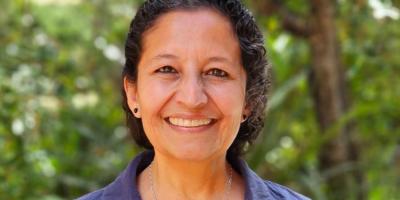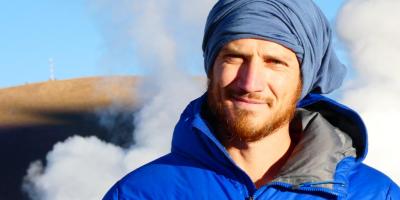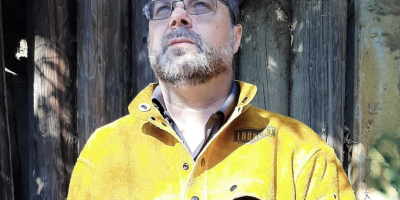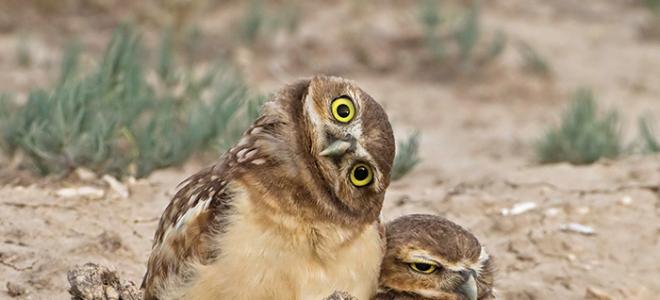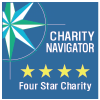Birds of Prey: Contributions to their Ecology, Natural History, Biomedicine and Conservation | Aves Rapaces: Aportes a su Ecología, Historia Natural, Biomedicina y Conservación
Miguel is a veterinarian, microbiologist and ornithologist specialized in birds of prey. Graduated from the University of Buenos Aires as a veterinarian, he dedicated himself to the study, research and conservation of birds of prey since 1985, shortly after joining Aves Argentinas. He was an active member of the Raptor Group of the Argentine Wildlife Foundation, from which, between 1987 and 1988, he carried out, together with Eduardo De Lucca, an eagle project, a pioneer in our country in the study of birds of prey. His postgraduate studies include training in threatened species management and conservation biology provided by the Durrell Preservation Trust. In 2004 he completed a master's degree in infectious diseases and a clinical residency in raptor medicine, anesthesia, surgery and rehabilitation at The Raptor Center, University of Minnesota. He completed his PhD in molecular microbiology in 2007 at Texas A&M University. Miguel has developed numerous research projects, both in the United States and Argentina, on biomedicine, natural history, ecology and bird conservation, which have given rise to some 80 scientific publications. Miguel has been a member of the board of directors of numerous veterinary and ornithological organizations, such as the Association of Avian Veterinarians and the Raptor Research Foundation. In the latter, between 2015 and 2017, he was its president. Since 1985 he has given talks, courses, workshops and seminars on topics of biomedicine, ecology, rehabilitation and conservation of birds, not only in the United States and Argentina but also in Spain, Scotland, Canada, Belgium, Mexico, Colombia, Panama, Costa Rica , Peru, Chile, Ecuador and Brazil. He has contributed to the training of hundreds of veterinary medicine students and to the research direction of numerous undergraduate and postgraduate students. He currently coordinates the Birds of Prey of Santa Cruz project, dedicated to expanding existing knowledge about birds of prey in this Argentine province.
Miguel es médico veterinario, microbiólogo y ornitólogo especializado en aves rapaces. Egresado de la Universidad de Buenos Aires como médico veterinario, se dedicó al estudio, investigación y conservación de las aves de presa desde 1985, poco después de asociarse a Aves Argentinas. Fue miembro activo del Grupo Rapaces de la Fundacion Vida Silvestre Argentina, desde el cual, entre 1987 y 1988, llevo adelante, junto a Eduardo De Lucca, el proyecto águila escudada, pionero en nuestro país sobre el estudio de aves rapaces. Sus estudios de postgrado incluyen entrenamiento en manejo de especies amenazadas y en biología de la conservación dictados por la Durrell Preservation Trust. En el año 2004 completó una maestría en enfermedades infecciosas y una residencia clínica en medicina, anestesia, cirugía y rehabilitación de aves rapaces en The Raptor Center, University of Minnesota. Completó su doctorado (PhD) en microbiología molecular en el año 2007, en Texas A&M University. Miguel ha desarrollado numerosos proyectos de investigación, tanto en Estados Unidos como en Argentina, sobre biomedicina, historia natural, ecología y conservación de aves, los que han dado origen a unas 80 publicaciones científicas. Miguel ha sido miembro de la comisión directiva de numerosas organizaciones veterinarias y de ornitología, tales como la Association of Avian Veterinarians y la Raptor Research Foundation. En esta última, entre los años 2015 y 2017, fue su presidente. Desde 1985 ha dictado charlas, cursos, talleres y seminarios sobre temas de biomedicina, ecología, rehabilitación y conservación de aves, no solo en Estados Unidos y Argentina sino también en España, Escocia, Canadá, Bélgica, México, Colombia, Panamá, Costa Rica, Perú, Chile, Ecuador y Brasil. Ha contribuido a la formación de cientos de estudiantes de medicina veterinaria y a la dirección en investigación de numerosos estudiantes de pre y post grado. Actualmente coordina el proyecto Aves Rapaces de Santa Cruz, dedicado a ampliar el conocimiento existente sobre las aves rapaces de esta provincia Argentina. https://www.westernu.edu/bios/?bio=msaggese
